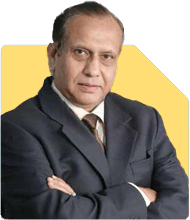Ashwini Dasgupta | Answer |Ask -Follow
Personality Development Expert, Career Coach - Answered on Sep 25, 2023
She has 15 years of experience training corporate professionals and has worked at Amazon, JP Morgan, Nomura and Satyam among others.
As a career coach, Ashwini specialises in helping growth-minded IT corporate managers develop their self-worth and create the right mindset so that they can achieve their career goals.
Besides corporate training, she offers personal consultations as well.
Ashwini holds a master’s degree in human resources from the Narsee Monjee Institute of Management Studies, Mumbai, and is a certified NLP trainer from the National Federation of NeuroLinguistic Programming, USA.
She has completed her soft skills training and image consultancy course from the Image Consulting Business Institute, Mumbai
Ashwini is also a PoSH trainer, certified by the Society for Human Resource Management.... more

Presently I am working as a General Manager Purchase and my age is 44, I find difficult in speaking without any agenda/specific question. Even in informal dinners or just casual talks I become blank. This is same in my personal life also. Like introvert type, but this is taking a toll on my professional as well as personal. I try very hard to be fluent with people but I am not able to do it. If somebody speaks 20 line and I convey the same in 1 line. But it is boring for others. How do I improve it.... like storytelling type.
Thank you for writing in.
First of all, stop labelling yourself (like you have mentioned in the above question "I am an Introvert type"). As humans our brains are wired to believe what information we feed to ourselves.
Second, acceptance. Accepting the way, you are. That is your strength.
Certain steps that can be considered -
- Know the agenda you are entering into. This will help you prepare in advance on the conversations you need to engage in.
If there are no agendas then you can -
- Initiate small talks. For example- talk about current affairs in the industry (avoid talking about religion or politics) as this can get sensitive. Conversation should be general in nature. This will help you break the ice with the individual.
- Asking open ended questions- such questions help you encourage others to share more information. Instead of asking yes/no questions, ask questions that require a more detailed response, such as "What was that experience like for you?" or "Tell me more about..."
- Focus on your observation- Observe your surroundings and what's happening in the environment. You can use these observations as conversation starters. For example, if you're at a restaurant, you can comment on the decor, the food, or the atmosphere.
- Share Personal Stories- Personal anecdotes can make your conversations more relatable and engaging.
-Use Body Language- Your body language can enhance your communication. Maintain eye contact, use gestures to emphasize points, and smile when appropriate to convey warmth and engagement.
-Don’t hesitate to seek for professional help- If you feel that your difficulty in engaging in conversations is causing significant distress or impacting your personal and professional life, consider seeking professional help. This should help you navigate with the tips and tricks.
Hope this helps.
All the best
Ashwini Dasgupta
To your Success. Be You. Be Confident
Author of Confidence Decoded- Is it a Skill or Attitude?
You may like to see similar questions and answers below
Anu Krishna |1745 Answers |Ask -Follow
Relationships Expert, Mind Coach - Answered on Oct 06, 2020
Virender Kapoor | Answer |Ask -Follow
Self-improvement Expert - Answered on Jun 27, 2023
Ashwini Dasgupta | Answer |Ask -Follow
Personality Development Expert, Career Coach - Answered on Jun 26, 2025
Archana Deshpande | Answer |Ask -Follow
Image Coach, Soft Skills Trainer - Answered on May 09, 2025
Dr Dipankar Dutta |1837 Answers |Ask -Follow
Tech Careers and Skill Development Expert - Answered on Dec 05, 2025
Dr Shyam Jamalabad |108 Answers |Ask -Follow
Dentist - Answered on Dec 05, 2025
Dr Shyam Jamalabad |108 Answers |Ask -Follow
Dentist - Answered on Dec 05, 2025
Dr Shyam Jamalabad |108 Answers |Ask -Follow
Dentist - Answered on Dec 05, 2025
Dr Dipankar Dutta |1837 Answers |Ask -Follow
Tech Careers and Skill Development Expert - Answered on Dec 05, 2025
Ulhas Joshi |280 Answers |Ask -Follow
Mutual Fund Expert - Answered on Dec 05, 2025
Dr Dipankar Dutta |1837 Answers |Ask -Follow
Tech Careers and Skill Development Expert - Answered on Dec 04, 2025
Ravi Mittal |676 Answers |Ask -Follow
Dating, Relationships Expert - Answered on Dec 04, 2025
Anu Krishna |1745 Answers |Ask -Follow
Relationships Expert, Mind Coach - Answered on Dec 04, 2025
Anu Krishna |1745 Answers |Ask -Follow
Relationships Expert, Mind Coach - Answered on Dec 04, 2025




























